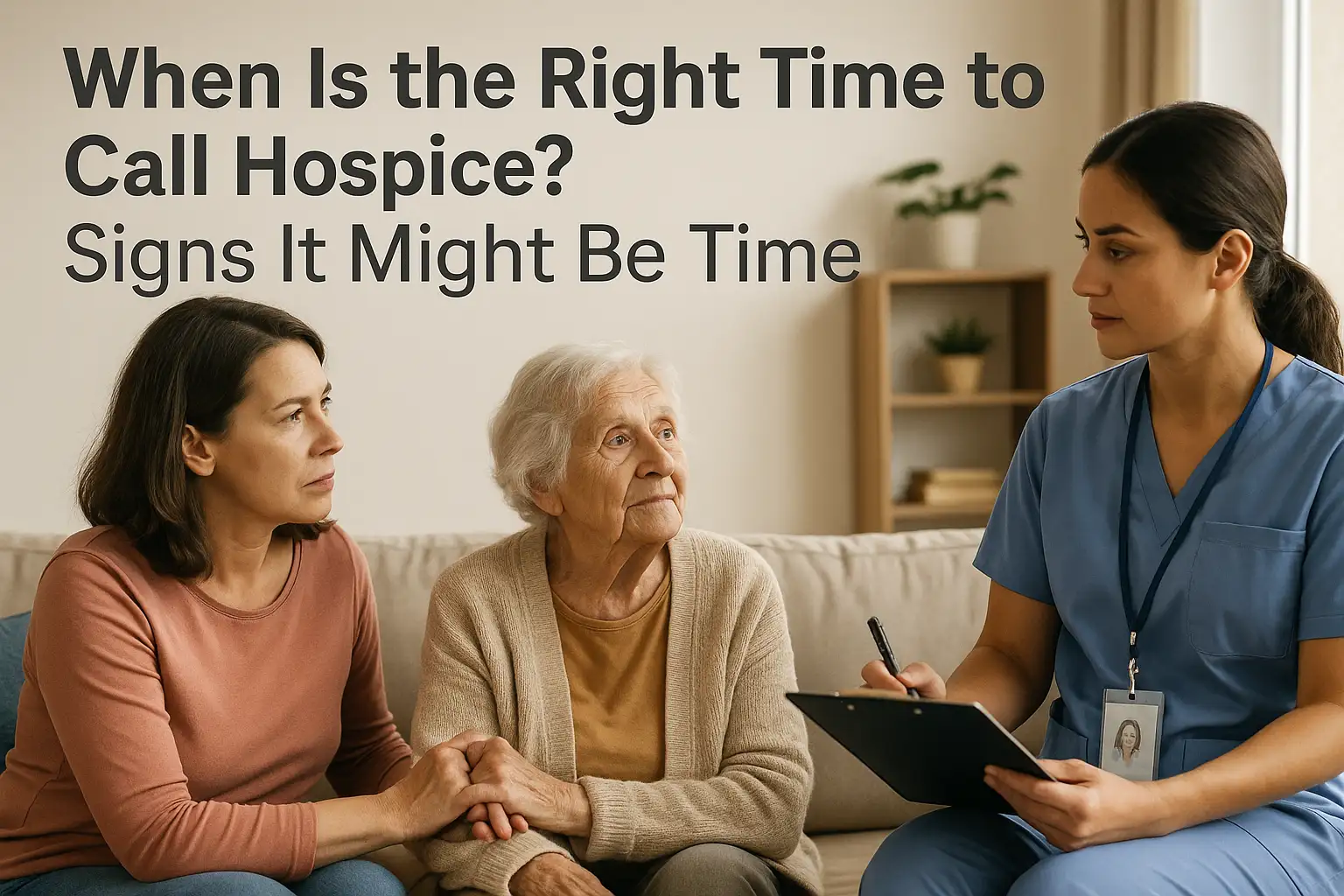
If you’re asking yourself whether now is the time, there’s a good chance it might be.
What Does Hospice Actually Do?
Before we talk about timing, let’s clear something up: hospice isn’t about giving up. It’s about changing focus — from curing the illness to maximizing comfort, dignity, and presence in the time that’s left.
The hospice team supports both the patient and the family: pain management, emotional and spiritual care, and 24/7 on-call support — most often right at home in Los Angeles.
Key End-of-Life Signs to Watch For
Here are some common end of life signs hospice providers in Los Angeles look for when evaluating if someone qualifies for hospice care:
- Frequent hospitalizations or ER visits in recent months
- Rapid weight loss or poor appetite
- Increased sleeping or fatigue
- Recurring infections
- Difficulty breathing, even at rest
- Loss of ability to walk, bathe, or dress without help
- Declining mental awareness or confusion
If these are happening — especially more than one — it’s time to ask the question: Is it time to call hospice?
When to Call Hospice: The 6-Month Rule
To be eligible for hospice, a doctor must certify that the patient likely has six months or less to live if the illness runs its usual course. But that doesn’t mean you wait until the last few days.
The earlier hospice comes in, the more support you’ll get — and the more time you have to focus on what really matters.
But What If I’m Not Sure?
You don’t have to be 100% certain. Hospice providers can evaluate your loved one and let you know if they qualify. There’s no obligation. No pressure. Just answers.
And if it’s not time yet, they’ll tell you honestly — and guide you on what to watch for moving forward.
Why Los Angeles Families Often Wait Too Long
In L.A., we’re used to fighting — for traffic, for time, for one more treatment. But with terminal illness, the fight sometimes shifts. Not to defeat it, but to meet it with comfort, clarity, and love.
Hospice isn’t a last-minute rescue. It’s a way to ease the journey for everyone involved.
Take the First Step
If you’re Googling “when to call hospice”, your instincts are already telling you something. You don’t need all the answers today — but having a conversation with a local hospice provider in Los Angeles is a good place to start.
Reach out here to ask questions, share your story, and see what support is available. You’re not alone. 818-644-5357
Frequently Asked Questions
How do I know it’s time to call hospice?
If you’re wondering whether it’s time, it usually is. Hospice is appropriate when a serious illness is progressing and daily life is getting harder—especially if there have been recent ER visits or hospitalizations, weight loss, more sleep or fatigue, shortness of breath at rest, infections, confusion, or a growing need for help with walking, bathing, or dressing. A hospice nurse in Los Angeles can evaluate eligibility with no obligation.
Does choosing hospice mean we’re giving up on care?
No. Hospice shifts the goal from curing to comfort. The focus becomes pain and symptom management, emotional and spiritual support, and protecting dignity and time together. Treatments that ease symptoms (for example, oxygen, medications for pain or breathlessness) continue, and the team is available 24/7 for urgent needs.
Where is hospice care provided?
Most hospice care happens right at home. It can also be provided in assisted living, skilled nursing facilities, and other residential settings throughout Los Angeles and Ventura County. The hospice team comes to you, coordinates equipment and medications, and teaches families what to expect day to day.
How is hospice paid for—will Medicare cover it?
Yes. Medicare, Medi-Cal, and many private insurance plans cover hospice at 100% for eligible patients, including medications related to the terminal diagnosis, medical equipment, nursing visits, social work and spiritual care, and on-call support. There is typically no deductible or out-of-pocket cost for covered services.
What if we start hospice and then change our minds?
Hospice is not a one-way door. You can pause or revoke hospice at any time to pursue disease-directed treatments, and you can return to hospice later if needed. The team will guide you through options so decisions match your goals and preferences.
